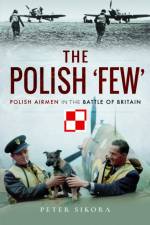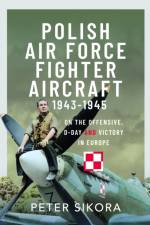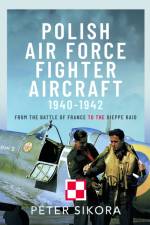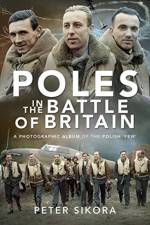av Peter Sikora
337
Polish fighter pilots received their baptism of fire over their own country in September 1939, when they were overwhelmed by the aerial might of Germany and the Soviet Union. Despite this, they claimed over 120 enemy aircraft destroyed. When the Polish Air Force was reborn in France, the same men fought against the same enemy, yet with more experience and with better understanding of their opponents' tactics - though, as the author reveals, the aircraft they flew were, in most cases, quite different.Polish airmen also proved themselves during the Battle of Britain, when 145 men from Poland, the biggest non-British contingent in Fighter Command, fought for the survival one of the last bastions of democracy. With an impressive tally of 126 enemy aircraft destroyed over Poland, and a further fifty-one in France, these men, including combat pilots, flying instructors and test pilots, had to be trained to serve under the command of the RAF. They had to learn a new language that was crucial for them to be part of the Fighter Command organization, and when they finally did, for every 100 men involved in fighting Göring's Luftwaffe in the air, up to twenty of them were Polish. During the Battle of Britain fighter pilots from Poland destroyed over 202 enemy aircraft with 303 Squadron becoming the most successful unit in the whole of Fighter Command.Ten Polish fighter squadrons were eventually formed and went on to fight alongside their British, Canadian, Australian, Belgian, or Dutch brothers in arms in the RAF's offensive over northern Europe that began in earnest in 1941. In so doing, the Polish fighter pilots achieved many successes against the enemy in the sky as well as on the ground, though, inevitably, at a cost.Polish Air Force Fighter Aircraft, 1940-1942 tells the story that the men and machines of the Polish squadrons underwent from the Battle of France to the Dieppe Raid. The latter was almost as disastrous in the air as it was on the ground - though, from the Polish perspective, it confirmed the long-developed skills of their pilots. This book, however, is not just about the aircraft the Polish aircrew flew, it also reveals how these men lived and fought in the early years of the Second World War.




